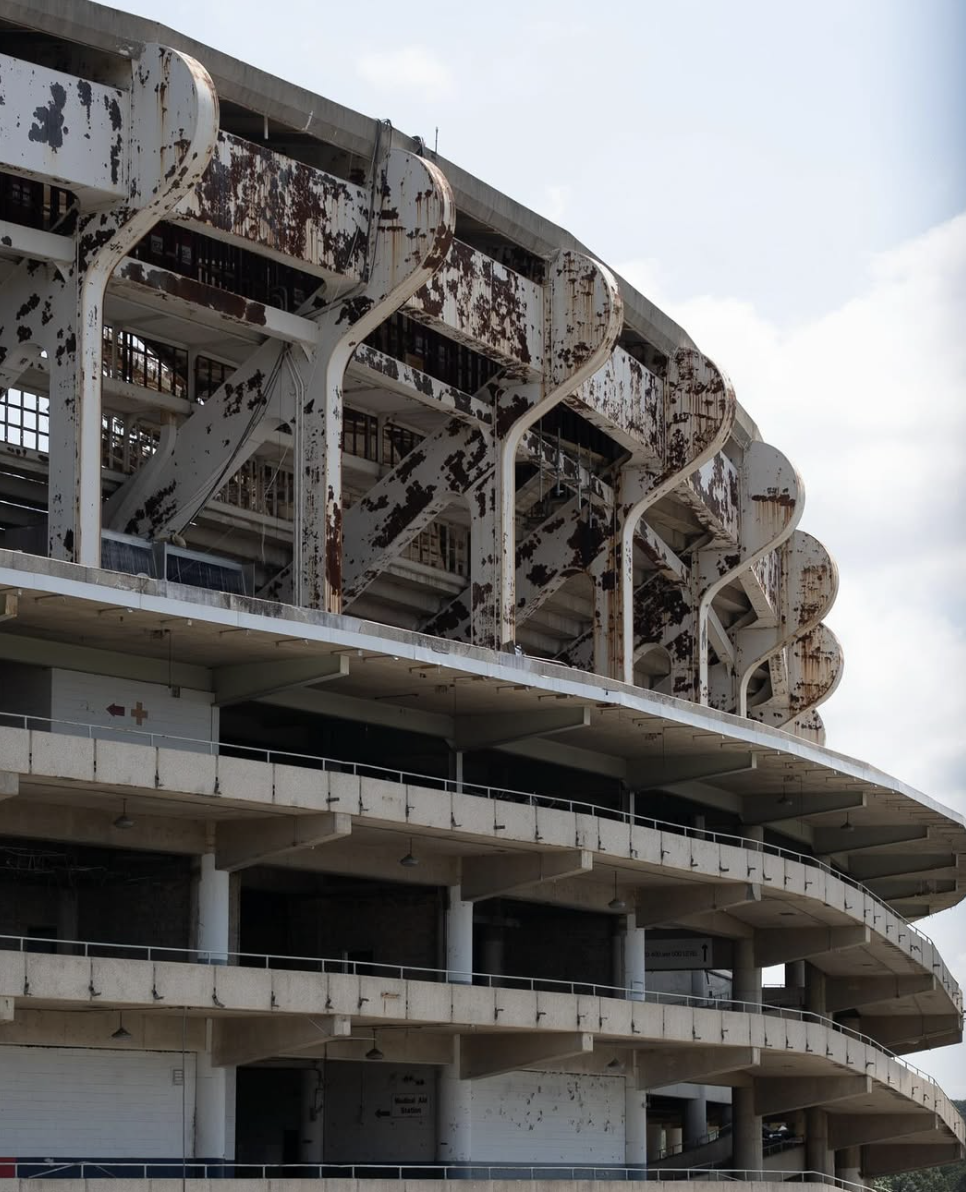The Washington, D.C. City Council approved a redevelopment plan for the Robert F. Kennedy (RFK) Memorial Stadium on Sept. 17.
The Council approved the measure by an 11-2 vote, which will use $1.7 billion in city funds to bring the Washington Commanders, who have played in Landover, Md., since their departure from RFK Stadium in 1996, back to D.C. The redevelopment plan includes reconstructing the 65,000-seat stadium, planned to open in 2030, and a provision for new housing, retail and park spaces to be developed alongside the stadium.

A spokesperson for Ward 7 Councilmember Wendell Felder (GRD ’18) said the redevelopment project’s high multibillion-dollar cost will be offset by long-term benefits projected for the area.
“The publicly funded element of the RFK Stadium redevelopment is a targeted infrastructure investment that reflects the type of commitment we make for any major project of this scale across the District,” the spokesperson wrote to The Hoya. “Resources will be reinvested directly into Ward 7 and other impacted neighborhoods to support community priorities such as housing stabilization, small business development, workforce programs and health equity initiatives.”
Ezra Tinsky (SFS ’26), a D.C.-area native, said allowing the Commanders to play in D.C. again is crucial both for the city and the team.
“Bringing the Commanders back to D.C. where they rightfully belong will likely help open up the Commanders to a new host of communities,” Tinsky told the Hoya. “In a time of divisive politics and slander against our great city, I believe that sports can be the great uniter.”
While the city’s contribution to the stadium will be raised through a new bond issuance, some critics argue development of the area would be better spent on other projects.
Dennis Sendros, political and organizing lead for DC YIMBYs, an organization advocating for increased housing development, said the D.C. government erred by prioritizing contributions to private interests over what he sees as more pressing issues.
“D.C. is paying billions of dollars for a stadium on valuable, metro-accessible land while our first responders and childcare workers can’t afford a place to live in the city,” Sendros told The Hoya. “We should prioritize using the remaining space to build homes to address D.C.’s housing shortage and make the city more affordable.”
The Commanders agreed to over $300 million in direct tax concessions to the city and an additional $50 million in community benefits.
A joint City Council press release from August said the project will also include new housing developments and generate billions in tax revenue.
“It is important to not overlook the core original benefits of the project: that it will bring 6,000 new housing units to the site (including 1,800 affordable units), generate $26.6 billion in redevelopment tax revenue…and bring the Commanders back to the District!” the statement read.
The spokesperson for Felder said the stadium redevelopment proposal presented a unique opportunity for the city.
“Together, these investments will ensure that the RFK redevelopment delivers not only a world-class destination but also lasting, equitable benefits for the residents most impacted by this once-in-a-generation project,” the spokesperson said.
Commanders fans will have to wait until at least the 2030-31 season to see the team play in the new stadium. D.C. Council Chair Phil Mendelson anticipates accompanying housing and retail spaces will be finished years after the stadium’s scheduled 2030 completion due to the lengthy rezoning process. The working name for the new facility remains the “New Commanders Stadium.”
Tinsky said having a new stadium in D.C. would allow greater accessibility to Commanders games going forward.“I haven’t gone to a Commanders game for a long time, especially since being at Georgetown, because it’s so far and I don’t have a car,” Tinsky said. “Had the stadium been closer, I could’ve made it out there on many more Sunday afternoons.”